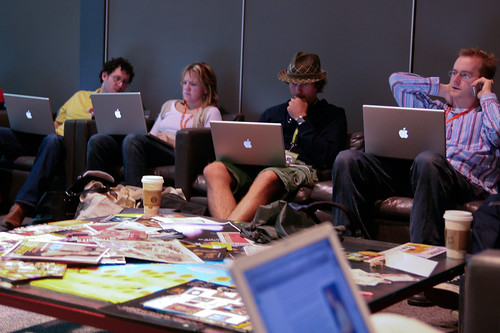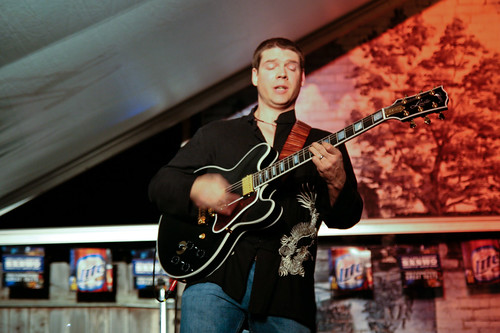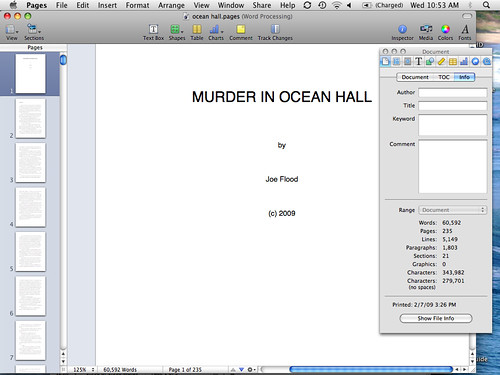
People writing (maybe) at SXSW 2007.
This poll got me thinking about the endless debate (among writers and techies, that is) about the best word processing tool. As a writer, you think I would have a strong and absolute preference for one software program over another. After all, an easy to use writing tool is vitally important to my trade.
However, like most writers, I’ll write with whatever’s available, whether that’s a clay tablet, pen and paper, or software program outfitted with the latest features. Here’s what I’m using now:
Word 2004 for the Mac – you really can’t escape Word if you work in an office these days. Like Starbucks, it’s ubiquitous. I use it because it’s on my computer at work and I have to. I hate its constant, distracting whirr of activity, the noisy autosaves, the stupid autocompletes, the aggravating formatting issues.
TextEdit – a lovely little program, ideal for short bits of text to dump into web pages, email messages, Word docs and Scrivener (see below). It’s a perfect word processor for laptops because it’s not a resource hog. With it, I’ll write text for my novel that I then paste into Scrivener.
Google Docs – the successor to Word. Google is the company that will dominate our work lives like Microsoft once did. Deal with it. I use Google Docs for things I want access from home and work and to share with others. For example, I have a doc of furniture I want to buy, complete with links and photos.
Scrivener – a program that causes well-deserved spasms of joy among Mac novelists. Though it was created by a non-programmer, it’s a nearly perfect example of a Mac program. It keeps you organized and gets out of your way when you want to work. It’s doubled my productivity through it’s ease of use. I spend every weekend in it, working on my novel.
Pages – my next love. I took the first couple chapters out of my novel and dropped them into Pages. I quickly created a book cover and, my god, it looked like a real book! That’s inspiring.
For me at least, my workflow would go TextEdit -> Scrivener -> Pages.
However, all this debate over the perfect word-processing tool is a distraction, like discussions among photographers over lenses. In the past, I’ve written with incredibly primitive tools, like manual typewriters. What matters most is writing.





